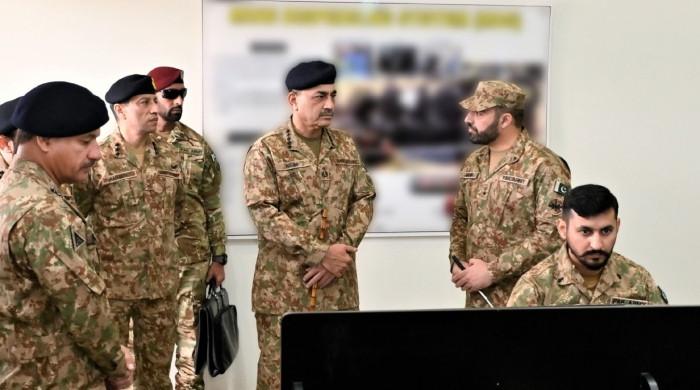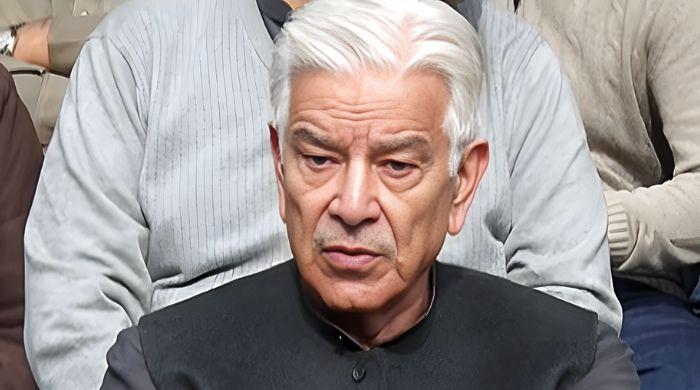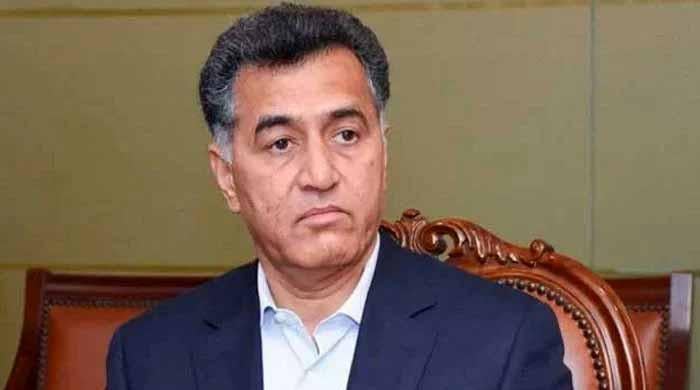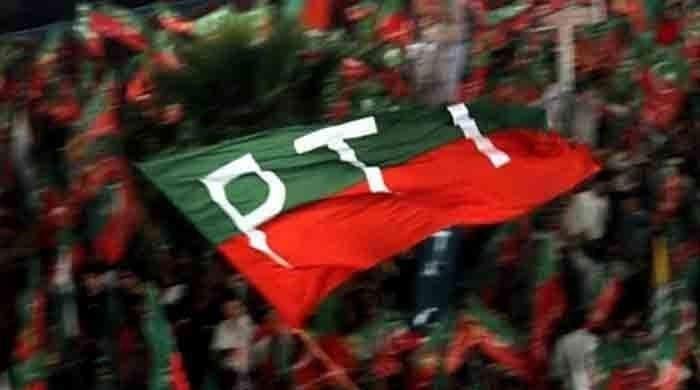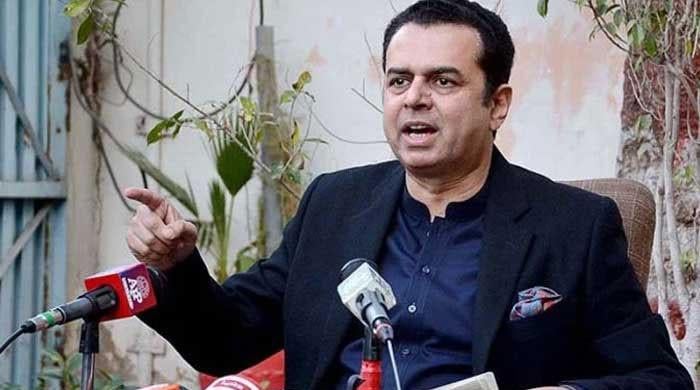Pakistan’s population growth is a ticking time bomb: Joanna Reid
Geo.tv speaks to Joanna Reid, head of DfID Pakistan, about the country’s most urgent needs and the challenges international aid workers face
August 19, 2017
The United Kingdom’s Department for International Development (DfID) has been working in Pakistan for the last 57 years, in areas of education, poverty alleviation, women’s rights and health, amongst other things.
We spoke to Joanna Reid, the head of DfID Pakistan, about the country’s most urgent needs and the challenges international aid workers face.
Benazir Shah: Pakistan is one of the largest recipients of the United Kingdom’s development investment. Could you tell us why?
Joanna Reid: Over the years, Pakistan has grown to become DfID's biggest overseas program. Now, there are two reasons for this; one is that the need is enormous. Over 60 million people in Pakistan live in poverty. Which means that one in three people live on 80 pence (Rs. 108) a day. One in 11 children die before their fifth birthday and 44 percent of children in the country are stunted. Those are pretty stark figures. Also, there is now an opportunity for change. Pakistan's people want change. Our aid is working and we can see its impact.
Shah: What is the DfID's commitment to Pakistan this year?
Reid: The Department for International Development is a United Kingdom government department responsible for administering overseas aid. In 2017, we have committed 370 million pounds for Pakistan.
Shah: Has this budget allocation increased over the years?
Reid: It has increased. Our relationship with the country is extremely strong. We have had a long development partnership. What you see today is a virtuous circle of programs that continue to be more effective. This is primarily why we are bringing more money to the table. But ultimately, it should decrease because Pakistan should not be, and is not currently, dependent on overseas aid. We should help that transition so that Pakistan is able to and willing to pay for its own basic services.
Shah: One the focus areas listed on DfID's website is "strengthening democracy and governance in Pakistan." How is the organisation facilitating democracy?
Reid: Now that means a number of different things. But our program is about the system and the processes. We work to ensure that the elections, for example, are free and fair and seen by the outside world to be free and fair. That is very important for Pakistan and its place in the international community. For us, it also means that everyone gets the chance to vote. Women and disabled people are registered and are provided with the opportunity to cast their ballots. Everyone should have a say in how his or her country works.
Shah: How do political happenings in Pakistan impact aid work?
Reid: The UK has been a friend of Pakistan for many years. Over time, we have seen many political changes. Some of the changes happening right now are a matter for Pakistan and the Pakistani people. The DfID works with institutions, to build their capacity. We watch the processes but it is not for us to comment on.
Shah: DfID is assisting education programs in both Punjab and Khyber Pakhtunkhwa. Which of the two provinces has performed better in the last four years?
Reid: Both programs are sort of mirrors of each other. They are very similar. What we are doing in the two provinces, is building systems. We have moved beyond just getting children enrolled in schools. Now we must make sure that the children and their children’s children also have access to schooling. It is no longer about building classrooms. DfID is helping departments that are going to build the schools that provide quality education. We have to answer these questions: How long will these children be in school for? Will they actually be able to do something with their learning? Can they read? Can they write?
Shah: According to a media report, in April, DfID slashed the funding for school construction and rehabilitation in Khyber Pakhtunkhwa.
Reid: I understand that such kind of things always makes for good headlines, don’t they? It is not about slashing budgets. It is about working with the people and the concerned departments to see what is possible in a time period. We need to understand how many schools can be built in a certain time period. The money is then adjusted accordingly.
Shah: Coming to your family planning initiative. At a recent summit hosted by the British government, Pakistan made strong commitments to providing better family planning services. Our minister of health, recently said that population growth in the country is a bigger concern than terrorism. Would you agree?
Reid: Absolutely. It is a time bomb. The population growth is of extreme concern to Pakistan. We are going to be getting the consensus result fairly soon. That should tell us exactly how big the population is. But we also know that Pakistan cannot sustain the kind of population growth that it has at the moment. It is a time bomb in terms of future employment, resources and food. Family planning is extremely important to help people choose. Family planning is also a woman’s rights. There is a very strong economic argument that if you have productive women - therefore the families are smaller, the spacing between children is better - then there will be more money to go around in that family.
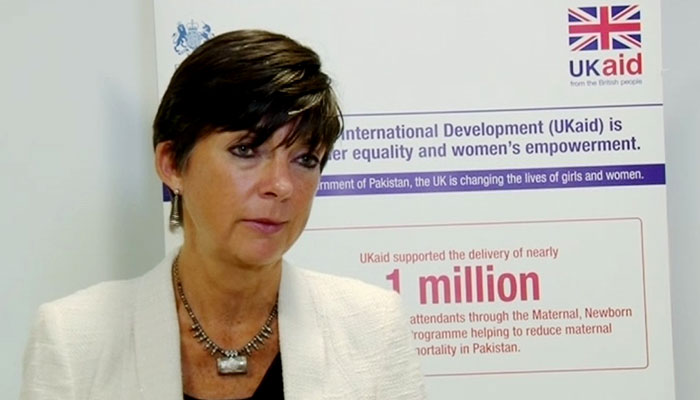
Shah: What is the current percentage of contraceptive used in Pakistan?
Reid: That is what we call the contraceptive prevalence rate. Around 35 to 40 percent of people here have access to contraceptives. But for a country the size of Pakistan, getting to 50 percent means at least seven to eight million more women need to be provided access. That is a lot of people. Again, there are two aspects to this; part of it is about working with the health department and making sure that through the public health system women are able to access family planning services. This means that basic health units are open 24 hours to give advice, so if a woman does not want to get pregnant too quickly she has options available. The other thing we support is social marketing. It is fascinating how in the hardest to reach areas you can still find a sachet of shampoo and a soft drink. These kinds of small stores can pop up anywhere. That is good marketing. So we need to get on the back of this kind of marketing. This way we can get more condoms and pills out there.
Shah: There must be some resistance to the initiative?
Reid: That is a good point. It is not just about making sure that supplies are readily available, we must also ensure that appropriate advice is also being provided. So the shopkeeper can provide some advice when needed on the products they are selling because people are worried about using them. They don’t know what the health risks are or how they work, or if they do at all. We have worked with religious leaders to assure people that it is okay, it is allowed and family planning is a good thing.
Shah: The Punjab government recently rolled out a family planning advertising campaign on the TV and print media that enlisted the help of religious leaders.
Reid: The movement is all across Pakistan, not just Punjab. Everyone is coming together to say this is a big issue and we need to do something about it. Part of that is public messaging and getting important figures onboard. But we must remember that even if you do an effective campaign, it is important for a woman to know that she can go and buy the needed supplies without resistance.




